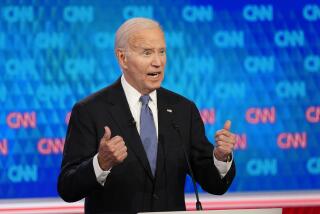Trump’s tax cuts help his loudest critics in Hollywood (and hurt lower-income showbiz pros)

In a surprise plot twist, President Trump’s new tax law is delivering many of its juiciest benefits to his most vocal critics in Hollywood.
The tax overhaul doles out windfalls to the producers and film financiers who control the entertainment industry. It slashes tax rates, especially on overseas profits that are the lifeblood of Hollywood, and changes accounting rules in a way that could attract more investment dollars to show business. With clever tax planning, A-list celebrities and directors could also benefit, especially by using a special break intended for business owners.
“It is going to be very encouraging for people who risk money making movies,” said Michael R. Morris, a tax lawyer at Valensi Rose in Los Angeles and a former Internal Revenue Service trial attorney.
Trump has said middle-class Americans will be the biggest beneficiaries under the GOP-backed $1.5-trillion tax cut. But in Hollywood, the opposite is playing out. It’s the struggling performers and behind-the-scenes workers who could get squeezed by the tax law.
Sandra Karas, an actor and tax attorney, has been touring the country for the Actors’ Equity union to warn members about one very expensive change for working- and middle-class performers: the elimination of deductions for work-related expenses such as union dues, lessons, publicity, travel to auditions and payments to agents who line up jobs.
Those write-offs have been crucial for actors who are often considered employees for their gigs, even if they’re temporary. Top earners in Hollywood are almost always independent contractors or owners of so-called pass-through entities; both will still be able to deduct those expenses.
“The money is moving up to the top, and it’s not going to go back down to the little guy anytime soon,” Karas said.
Hollywood’s hostility to Trump was apparent during the 2016 election, when the entertainment industry made $85 million in political donations and sent 84% of its individual candidate donations to Democrats — the highest level since at least 1990 — according to the Center for Responsive Politics. This year, some of the industry’s biggest names, including Steven Spielberg, George Lucas and Jeffrey Katzenberg, are bankrolling Democrats in competitive Senate campaigns.
Still, those donations don’t mean the industry’s lobbying groups were absent in Washington as Republican lawmakers were crafting the bill, which passed in December without a single Democratic vote. The big studios such as Walt Disney Co., Viacom Inc., Warner Bros. Entertainment Inc. and NBCUniversal Inc. will benefit from the new corporate tax rate of 21%. Most of the studios’ owners, including Disney and Comcast Corp., previously paid effective tax rates above 30%.
Beyond that, one of their main lobbyists, the Motion Picture Assn. of America, successfully pushed for the entertainment industry to be able to immediately write off the costs of large U.S.-made film and TV projects. An earlier iteration of the House tax bill wouldn’t have allowed entertainment projects to be included in the new expanded write-off provision.
Under the old tax regime, producers could deduct the costs of large projects only gradually over the many years that they typically bring in revenue. In the final version of the tax bill, total production costs, which can exceed $100 million for big-budget blockbusters, can be deducted as soon as a new product is released to the public. The benefit is set to phase out starting in 2023.
“That is going to be a tremendous boon for TV and film production companies, because they have so much money tied up in those projects,” said Mitchell Freedman, a certified public accountant and wealth manager.
A quicker tax write-off may also make it easier for Hollywood to attract outside investors, said Benson Berro, a partner at KPMG, especially since there’s booming demand from streaming services such as Netflix and Amazon.
Treasury Secretary Steven T. Mnuchin, who helped oversee the tax revamp, is familiar with these sorts of financing deals. A former investment banker, he helped produce dozens of films, including “The Lego Movie” and “Mad Max: Fury Road.” Mnuchin said he divested his stakes in Hollywood last year, but he hasn’t disclosed whom he sold them to. A Treasury spokeswoman didn’t respond to a request for comment.
Another addition to the tax bill introduced by the Senate allows owners of U.S. content to pay an ultra-low tax rate, about 13%, on foreign income. The provision — designed to encourage companies to bring offshore profits and intellectual property back to the United States — is a triumph for an industry that licenses its products worldwide. Film and TV were responsible for $16.5 billion in exports in 2016, according to the MPAA.
“Studios just got a big windfall,” said Schuyler Moore, a partner at the Greenberg Glusker law firm. By combining lower rates, immediate expensing and the “astounding” new rate on foreign-derived intangible income, Moore said, “they’re not going to be paying taxes for a long time.”
On the individual side, the most lucrative break for many Hollywood luminaries could be a new 20% deduction for pass-through businesses, whose income is taxed on owners’ personal returns. Hollywood’s biggest stars generally set up loan-out corporations, under which they “lend” their services to film, TV and theatrical productions. The loan-outs can be structured as limited liability corporations or S-corporations, both of which can qualify for the new break.
Taking the full 20% deduction would effectively lower their top federal tax rate to less than 30% — but first they need to qualify.
Congress intentionally excluded high-income owners of service businesses in the “performing arts” and other fields from the tax break. Entertainers, along with thousands of other businesses across the country, are waiting for IRS guidance to define exactly what a service business is.
“I can guarantee you that we’ll find some nice loopholes,” said Mitchell R. Miller, a tax attorney based in Beverly Hills.
Performing on stage or in front of the camera might not get the pass-through deduction, but actors could still get the break on income from merchandising, licensing and side projects such as cookbooks, vineyards and perfume and clothing lines. Or big-name actors might bargain for ownership stakes in projects, giving them a slice of the tax benefits enjoyed by studios and investors.
A producer or director, meanwhile, might sign a contract to deliver a product — a film or TV show —rather than their artistic services. “It may change how contracts are written,” said Stephen Landsman, a CPA and tax partner at Squar Milner.
One drawback for the Hollywood elite in the tax law: Many are likely to get hit by the $10,000 limit on deductions for state and local taxes. And moving out of a high-tax state such as California may not be the easy answer. State tax collectors can be aggressive about disputing those who claim they’ve changed residency, especially when they have strong professional links to their former locations.
Typical performers don’t have to worry about the $10,000 deduction cap. And they typically don’t make enough money to justify setting up a loan-out corporation: consistent annual earnings of at least $100,000. The estimated 43,500 actors in the United States earn a median wage of $17.49 per hour, and few work full time.
Todd Cerveris and his wife are New York-based actors who sometimes spend half the year on the road performing. They expect to pay as much as $7,000 more in taxes this year because of lost deductions.
“It effectively becomes a tax for trying to be an actor,” Cerveris said in an interview from Cincinnati, where he was working on the premiere of a new play. “I’m not trying to make a killing, but I am trying to make a living, and that’s getting harder and harder.”
More to Read
Inside the business of entertainment
The Wide Shot brings you news, analysis and insights on everything from streaming wars to production — and what it all means for the future.
You may occasionally receive promotional content from the Los Angeles Times.










